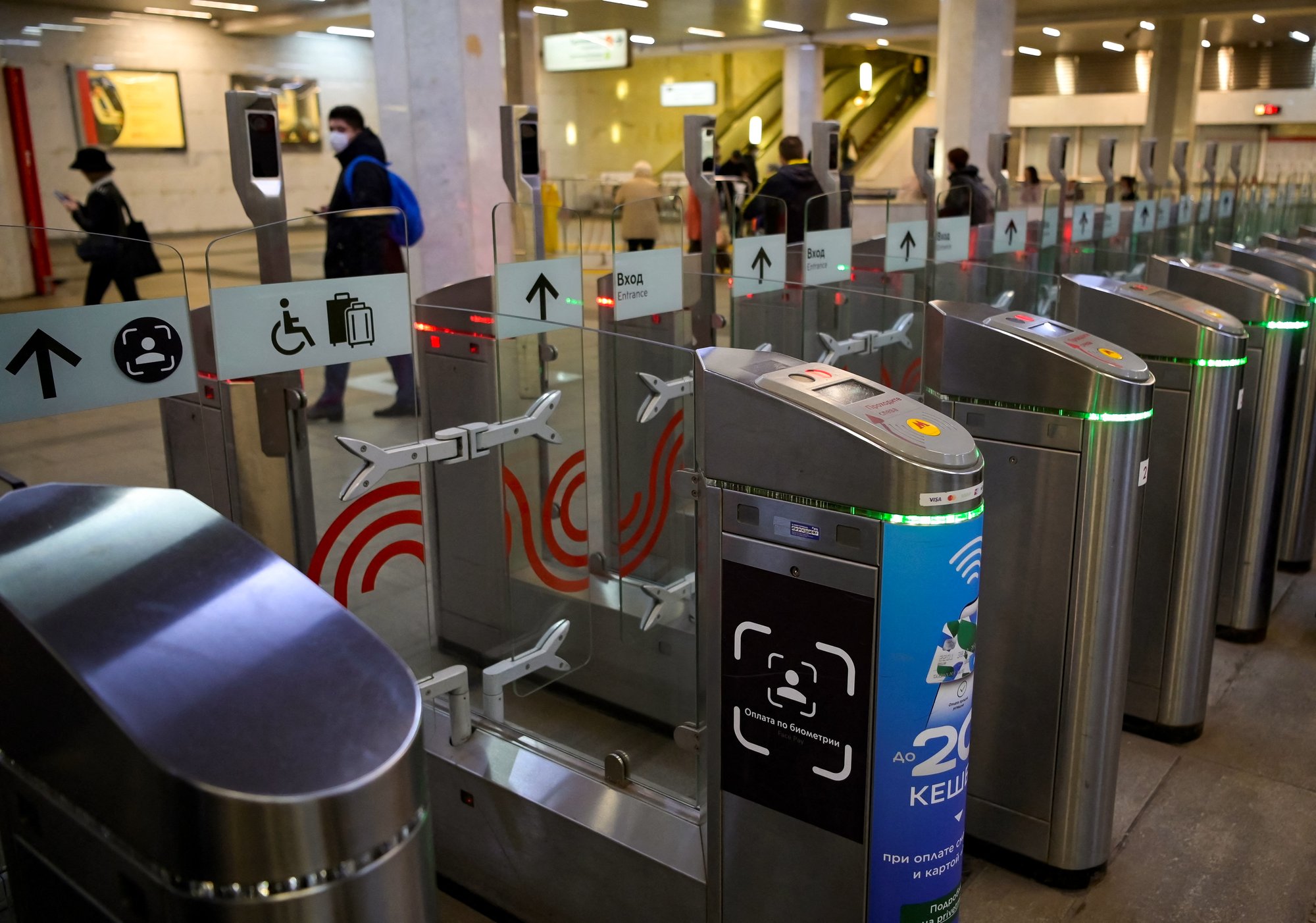The access recognition and fare payment system FacePay was launched at all Moscow metro stations on Friday.
Passengers now have the opportunity to enter more than 240 metro stations in the Russian capital through gates equipped with FacePay digital cameras without paying cash, using credit cards and smartphones. To activate the service, the traveler must send the self-recorded image on his mobile phone to the Moscow metro via the application developed for this purpose. The fare will be debited by FacePay from the traveler’s bank card or transport passport, troika, upon entry.
Speaking to reporters in Moscow, Maxim Likutov told reporters about the system, among other things, that it allows for contactless entry amid the Covid-19 epidemic. It sought to reassure those concerned with the security of passenger data that the system is properly encrypted and that the entrance gate’s camera reads the “biometric key” rather than a photo of the face or other personal information.
“Under the basic configuration, all personal data is stored by banks, and we only get an electronic code, as in credit cards. We don’t keep personal information,” the deputy mayor told Bloomberg earlier.
Lexutov said Face Pay could be used regularly by up to 15 percent of subway riders over the next three years.
“Moscow is the first city in the world where the system works to this extent. The ease of use of FacePay is unparalleled anywhere in the world.”
Surface railways and other public transport in the Russian capital are also scheduled to be connected to the system at a later date.
Facial recognition technology has already been widely used by the Moscow authorities, and the Russian capital’s network of nearly 200,000 digital surveillance cameras is used to identify criminal suspects. However, advocacy activists fear that they could use the system as a tool for illegal surveillance.
Andrei Kishigin, deputy head of Moscow metro security, said that between August 2020 – the start of the FacePay test – and March this year, 900 people are suspected of committing a serious crime. RBK Economic Ceiling previously wrote that the cameras were marketed by the Russian company VisionLabs, which specializes in biometric identification.
By the way, this week the Kommersant daily wrote that the Moscow municipality wants to redesign the Mos.ru public service site so that users’ photos uploaded there are automatically received by law enforcement authorities. The news was refuted by the Moscow mayor’s office, but the Kremlin says security officials already have legal access to private data stored on Russian public service portals. (MTI)






